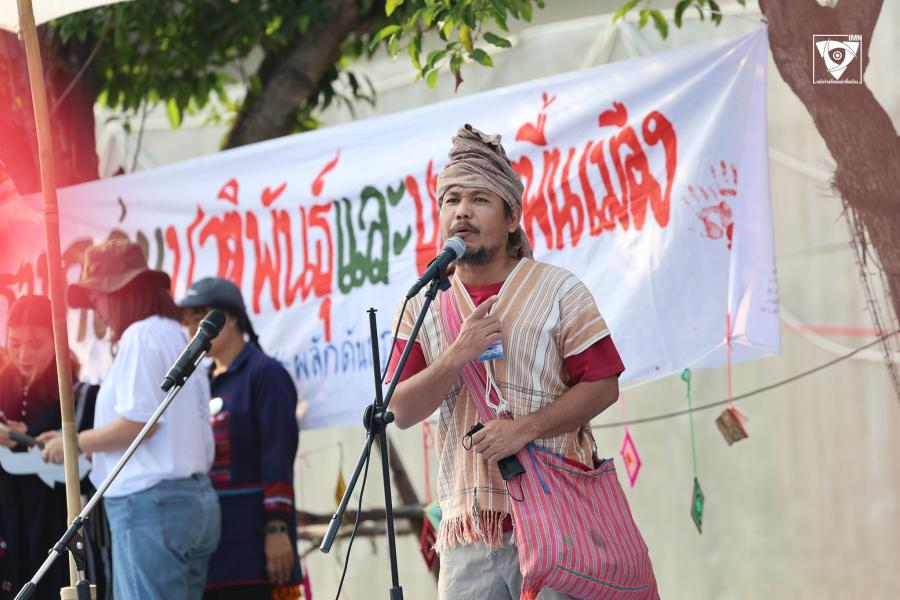Over a 12-month period, the Thailand Chapter of Pacific Asia Travel Association (PATA), the world's largest travel organization, commissioned fact-finding missions with three main objectives: to ascertain the opinions of international experts concerning various collaborations between northern Thailand's cultural minorities and the tourism industry; to evaluate the current situation in northern Thailand regarding the mountain peoples' involvement in tourism-related activities; and to produce a booklet titled Guidelines for Interaction between the Tourism Industry and Northern Thailand's Mountain Peoples to be distributed as widely as possible.
The PATA project aims to establish better relations between the minority cultures involved in tourism and the industry; to inform and educate interested parties about the nature of, and issues concerning, cultural tourism in northern Thailand; and to provide tourists with introductory material and guidelines on visiting northern Thailand's mountain villages.
Although the results of this questionnaire must be viewed as preliminary, the responses nonetheless indicate overwhelming agreement on issues relating to minority cultural tourism in northern Thailand. Due to the high response rate -- more than 70 percent -- of tourism professionals in Thailand, the results of this questionnaire have amounted to a virtual de facto industry critique of itself and its current operations with Thailand's mountain peoples. It also demonstrates the need and desire to implement long overdue changes in this branch of the industry.
In addition to the survey done by PATA, John Davies, an ecotourism development specialist and co-founder of Lisu Lodge in Chiang Mai, conducted interviews with headmen and administered questionnaires in three mountain villages, two Hmong and one Lisu. According to his research, it is clear that mountain people have strong feelings and opinions concerning tourism in their villages. They are almost unanimous in the following points:
- Tourism is seen by most as a valuable addition to the economy of the mountain peoples
- Visitors often offend hill tribe people. The villagers visited recognize this as (usually being) ignorance and are forgiving, but stress the need for education of visitors
- Despite the above, tourists are generally very welcome, and the experience of meeting them is usually interesting and enjoyable
- Tourist guides often give false information to their guests, for a variety of reasons, including lack of knowledge and understanding, and pursuit of their personal profit
- Cooperation between guides, tour companies and hill tribes would greatly improve hill tribe tourism
- Hill tribe people in the villages should be more directly involved with guiding, either as registered guides, or village guides, appointed by the village and tour operators
- Profits from hill tribe tourism should be more equally shared between operators and villages.
There is a general consensus among those answering the PATA questionnaire that tourism to the minority villages of northern Thailand was routinely implemented and developed in a haphazard and irresponsible manner. Neither specific plans or policies were in place to be followed, nor are there any formal plans at present. Negotiations or arrangements were seldom conducted with the villagers. Also, as many mountain people lack Thai citizenship, they are in essence second class citizens with few rights and fewer avenues of legal redress. Most operators took advantage of their social predicament and developed tours to mountain villages as an extremely low-investment, highyield product. According to the majority of respondents, benefits to the villages were typically negligible, and the consequences frequently negative.
Despite the negative impacts that most PATA respondents believe tourism has on mountain villages heavily frequented by tourists, all but one of the respore dents said that tourism could have a positive impact on northern Thailand's hill tribe people, if done properly. The feeling expressed was that these peoples should be seen, and treated, as partners, not attractions.
Many respondents suggested that if business continued as usual, there might soon be little business at all in the mountain villages of northern Thailand. Several wrote that without the villagers' active involvement and partnership with the industry, sustainability would not be possible. Representative committees with members from both sides need to be established and profit sharing must be implemented. Guidelines on working together and visiting villages need to be drafted and disseminated. Although several companies are genuinely working towards improved relations, cooperation, and tentative partnerships with the mountain people, this needs to become more the rule than the exception. Ecotourism needs to evolve from an advertising buzzword co-opted by many, to a genuine conviction and approach that will generate low-impact, mutually cooperative, sustainable, and prosperous enterprises.
Article copyright Cultural Survival, Inc.

